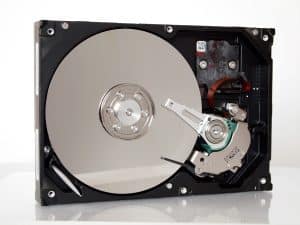Quantum Phase Computing: Wave-Based Processing
The world of computing is constantly evolving, and the latest breakthrough technology that is causing a buzz in the tech world is Quantum Phase Computing. While traditional computing relies on bits, the basic unit of information, to carry out calculations, quantum computing harnesses the power of quantum bits or qubits to perform more complex and faster calculations. Among the many advancements in this field, Wave-Based Processing has emerged as a promising technique for quantum phase computing. In this article, we will understand what Quantum Phase Computing is and how wave-based processing is revolutionizing the world of quantum computing.
Understanding Quantum Phase Computing
Quantum Phase Computing, also known as quantum phase estimation, is a quantum computing algorithm that is used to calculate the phase of a quantum state. The quantum state can represent an element of a superposition, which is a combination of different quantum states. In simple terms, quantum phase computing enables the measurement of the unknown phase of a quantum state. This makes it a powerful tool for solving complex mathematical problems that cannot be efficiently handled by traditional computers.
The Need for Quantum Phase Computing
While traditional computers have been the backbone of technology for decades, they have their limitations. As we continue to progress towards more data-driven and AI-powered systems, the computing power required to process and analyze this data is increasing. This is where quantum phase computing comes into the picture. With its ability to process large amounts of data simultaneously, quantum phase computing can provide a significant speed boost in solving complex problems.
Revolutionizing Quantum Computing with Wave-Based Processing
Wave-based processing is a relatively new technique in the field of quantum computing that is gaining attention for its potential to overcome the limitations of traditional phase estimation algorithms. Unlike the traditional binary representation of quantum bits, wave-based processing uses coherent states of light, also known as optical qubits, to represent information. These coherent states are more stable and less prone to errors, making them an ideal candidate for quantum computing.
The Advantages of Wave-Based Processing
One of the biggest advantages of wave-based processing is its inherent scalability. Unlike traditional phase estimation algorithms, whose accuracy decreases with the number of qubits used, wave-based processing can process an exponentially increasing number of qubits while maintaining a constant accuracy. This makes it highly efficient in handling large datasets and complex algorithms.
Moreover, wave-based processing is not limited to optical qubits. It can also be implemented using other types of qubits, such as superconducting qubits, making it versatile and adaptable to different quantum technologies.
The Use Cases of Quantum Phase Computing with Wave-Based Processing
The potential applications of quantum phase computing with wave-based processing are vast and diverse. From drug discovery and materials design to optimization problems and simulations, this technique can be applied in various fields that require complex calculations. By enabling faster and more accurate computations, wave-based processing can revolutionize industries such as finance, energy, and telecommunications.
Looking Towards the Future
The field of quantum computing is still in its infancy, but the advancements in wave-based processing have opened up new possibilities and ignited the imagination of researchers and scientists. As we move closer to realizing the potential of quantum computing, it is safe to say that wave-based processing will play a significant role in shaping the future of this field. With ongoing research and development, we can expect even more efficient and powerful computing techniques to emerge in the coming years.
In Conclusion
Quantum phase computing with wave-based processing is a groundbreaking technology that has the potential to change the world of computing as we know it. By leveraging the power of quantum bits and coherent states of light, this technique is pushing the boundaries of what is possible in terms of computation and speed. As we continue to make strides in this field, it is exciting to imagine the potential applications and innovations that quantum phase computing with wave-based processing will bring about.










